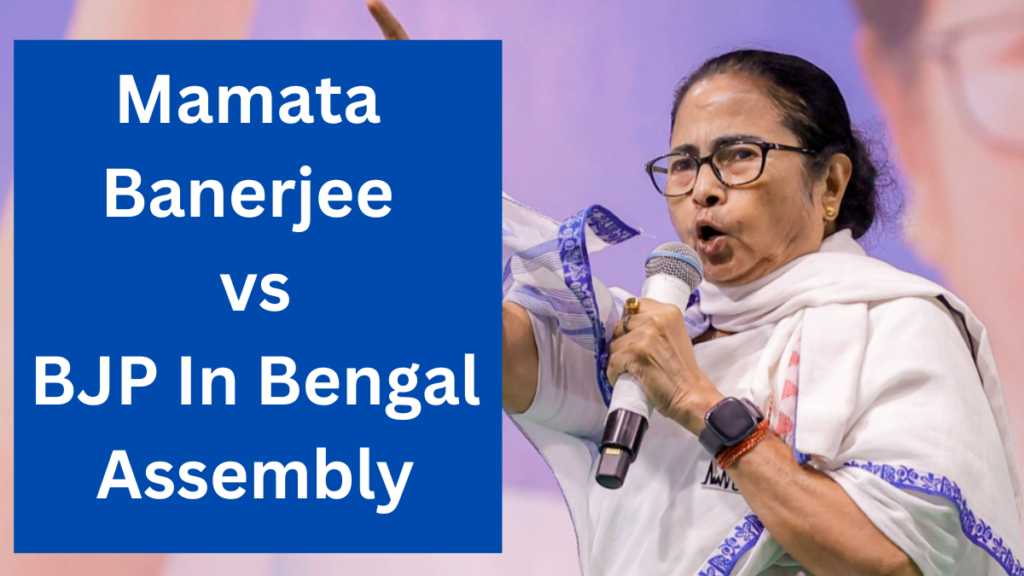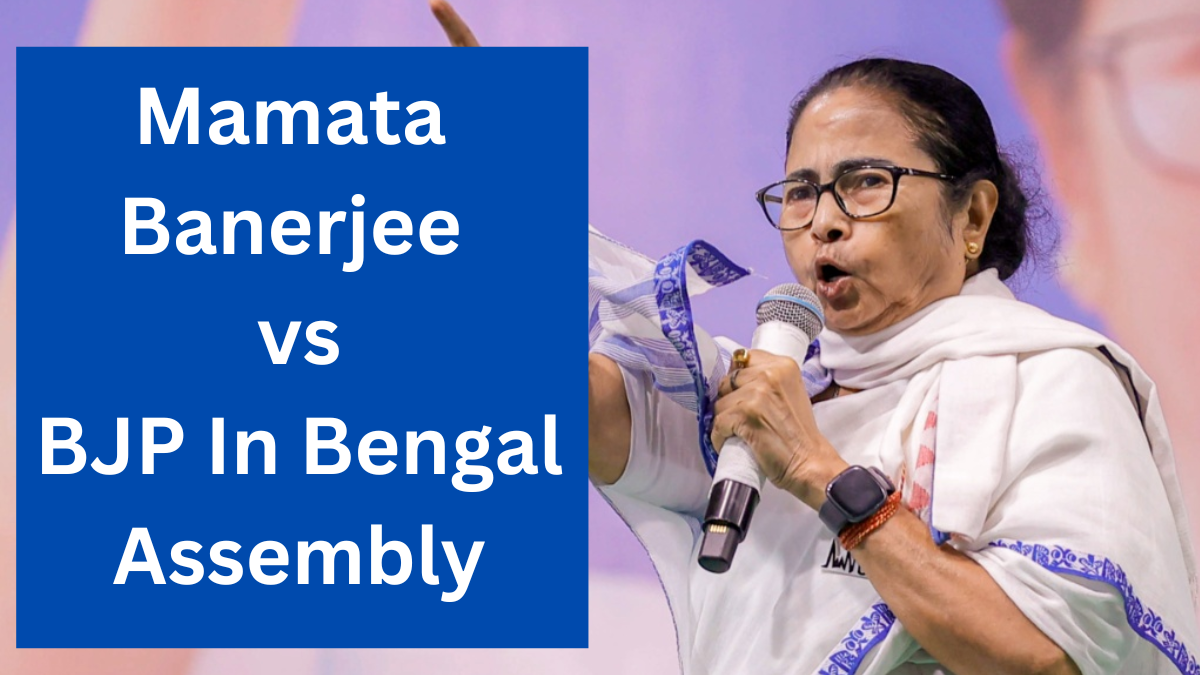In a heated political exchange during a recent Assembly session, West Bengal Chief Minister Mamata Banerjee strongly defended her government against allegations of being “anti-Hindu”. The ongoing row between Banerjee and the BJP escalated with strong remarks from both sides, underlining the tension ahead of the 2026 Assembly elections.

Key Highlights of the Controversy
- Mamata Banerjee’s Stand:
- Asserted her identity as a Hindu while rejecting BJP’s accusations.
- Condemned the BJP for attempting to create religious divisions during Ramzan.
- BJP’s Allegations:
- BJP leader Suvendu Adhikari accused Banerjee’s government of “anti-Hindu” policies.
- Alleged that Hindu temples were being vandalised in the state.
- Assembly Drama:
- BJP lawmakers staged protests outside the Assembly, amplifying the controversy.
Mamata Banerjee’s Response
During the Assembly session, Mamata Banerjee firmly stated:
- “I’m a Hindu… I don’t need certification from BJP.”
- She accused the BJP of “distracting the nation” from economic challenges by making communal statements.
- Emphasized India’s core democratic values of:
- Sovereignty
- Secularism
- Pluralism
“Every Indian has the right to practise his or her religion,” she added, reiterating her commitment to ensuring religious harmony in West Bengal.
Reference to Firhad Hakim’s Remarks
The session saw interruptions when BJP MLA Shankar Ghosh raised comments made by senior Trinamool leader Firhad Hakim in July 2023. Hakim had reportedly called non-Muslims “unfortunate” and suggested converting them to Islam for “Allah’s happiness”.
- Hakim’s Apology: Mr Hakim later apologized, and his party distanced itself from his remarks.
- Banerjee’s Reaction: Ms Banerjee confirmed she had personally warned Hakim against making such statements.
Suvendu Adhikari’s Controversial Comment
Suvendu Adhikari, the BJP’s Leader of the Opposition, reignited the controversy by declaring that Muslim MLAs from Mamata Banerjee’s party would be expelled if the BJP came to power.
- This statement was widely condemned as “hate speech” by Trinamool Congress leader Kunal Ghosh.
- Ghosh criticized Adhikari for promoting discrimination based on religion, warning that such a mentality was harmful to social harmony.
Political Context
- The ongoing tension stems from Adhikari’s shift from Trinamool Congress to the BJP in December 2020.
- With the 2026 West Bengal Assembly elections approaching, both parties are aggressively positioning themselves to secure voter support.
FAQs
1. What triggered the recent political controversy in West Bengal?
The controversy began when BJP leader Suvendu Adhikari accused Mamata Banerjee’s government of being “anti-Hindu”, prompting Banerjee to defend her administration while criticizing the BJP for fueling communal tensions.
2. What did Mamata Banerjee say about her religious beliefs?
Mamata Banerjee asserted her identity as a Hindu and firmly rejected BJP’s claims that her government was biased against Hindus.
3. What were Firhad Hakim’s controversial remarks?
Firhad Hakim had previously remarked that non-Muslims were “unfortunate” and suggested bringing them “under the fold of Islam”. He later apologized for his statement.
4. How did the BJP respond to Mamata Banerjee’s comments?
The BJP accused her government of supporting minority appeasement and warned that Muslim MLAs would be removed if they came to power, a statement that faced criticism for promoting religious discrimination.
Click here to learn more
